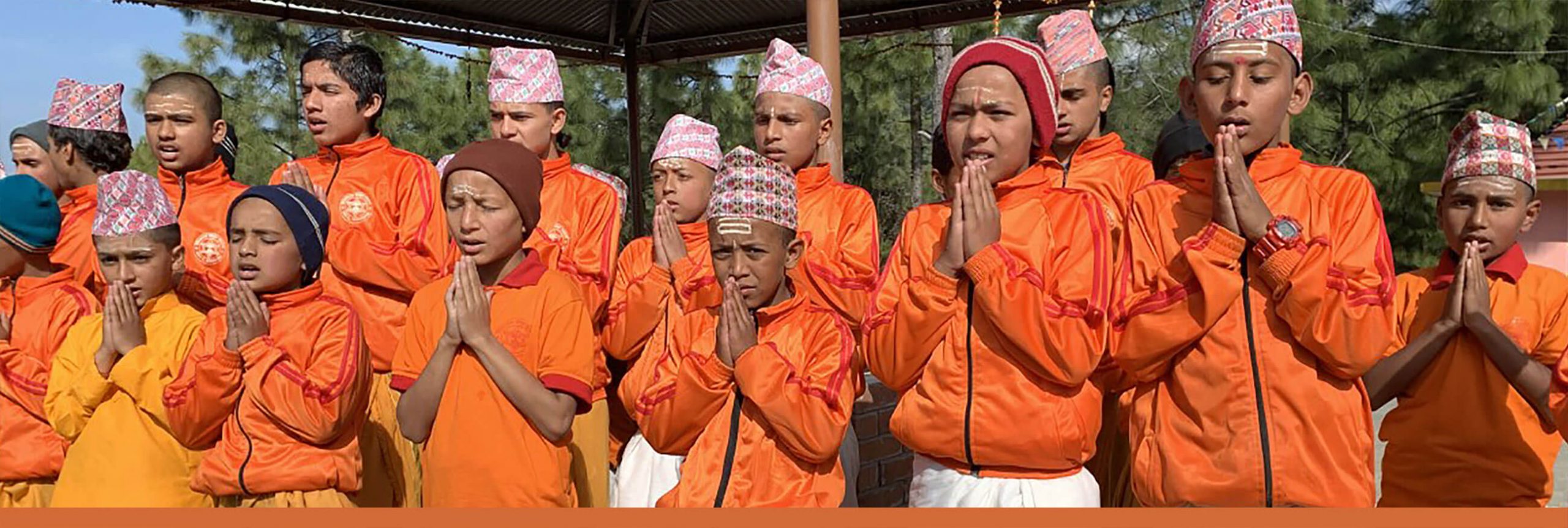

In particular, the Kathmandu Valley plays a special role for Nepal as it is home to the three Ancient Kingdoms: Kathmandu, Pathan and Bhaktapur. These former Kingdoms have not only preserved priceless art and architecture but also the living oral tradition of Vedic Recitations. It’s not surprising then that alone in the Kathmandu Valley seven UNESCO World Heritage Sites can be found.
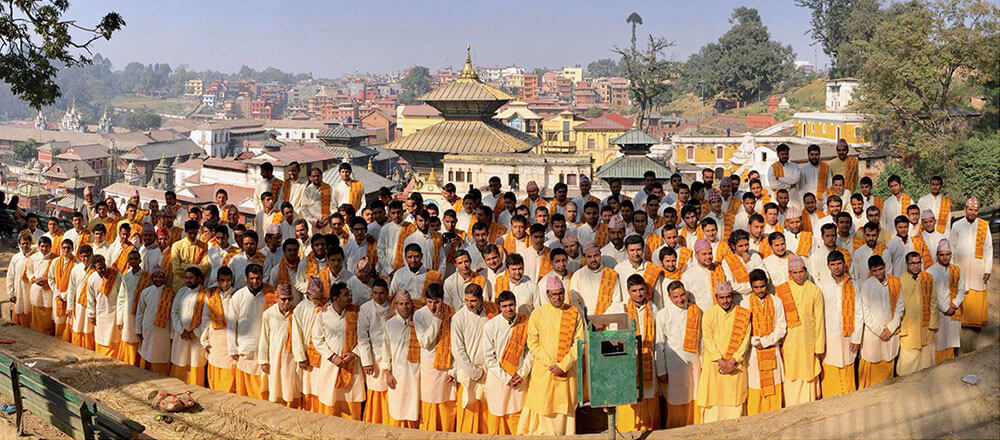
This notable Vedic cultural heritage of Recitations and Yagyas is part of a holistic science of consciousness which is known today as Vedic Science. This Vedic Science, like the recitations themselves, has a history of many thousands of years and is the foundation of many other branches of Vedic knowledge including Ayurveda, Yoga, Sthapatyaveda (Vedic architecture), Gandharvaveda (Vedic science of music), Vedanga and Upanga (Vedic philosophical systems) to name just a few.
In this modern age Nepal has faced an enormous change in just a short passage of time, giving rise to an escalating cost of living, lost agricultural lands, rising food prices, and wide-scale unemployment. Much of the remnants of this ancient Vedic Culture are in decay and could easily vanish if not preserved.
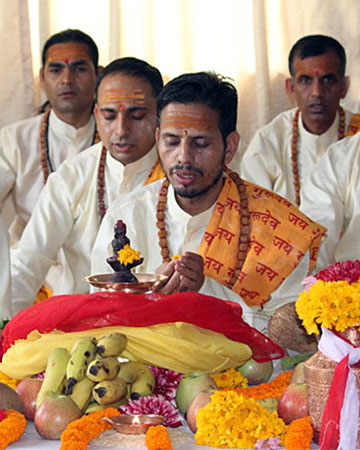
The goal of the Charity is to lend support, to protect, preserve and grow the Ancient Vedic World Cultural Heritage of Nepal.
Photo right: Daily Rudrabhishek Yagya in a Gurukul (Pandit school)
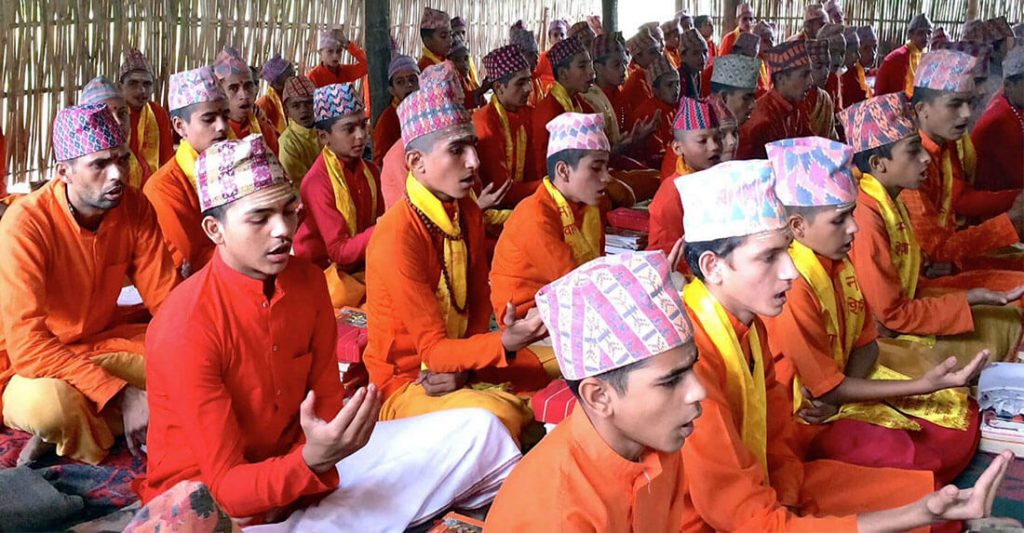
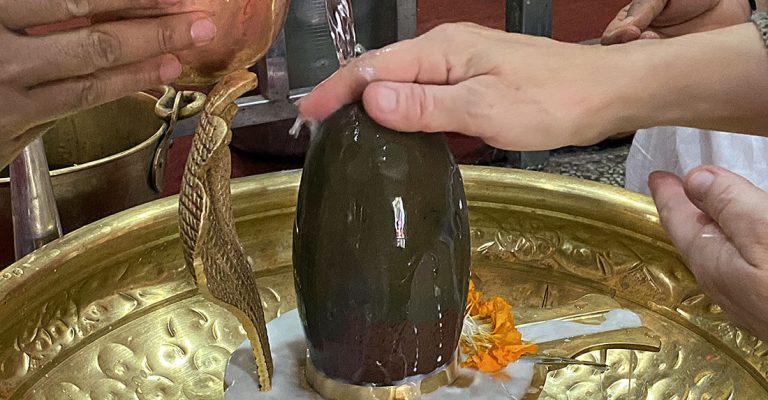
Photo left: Ceremony during the recitation of the Rudrabhishek Yagya
